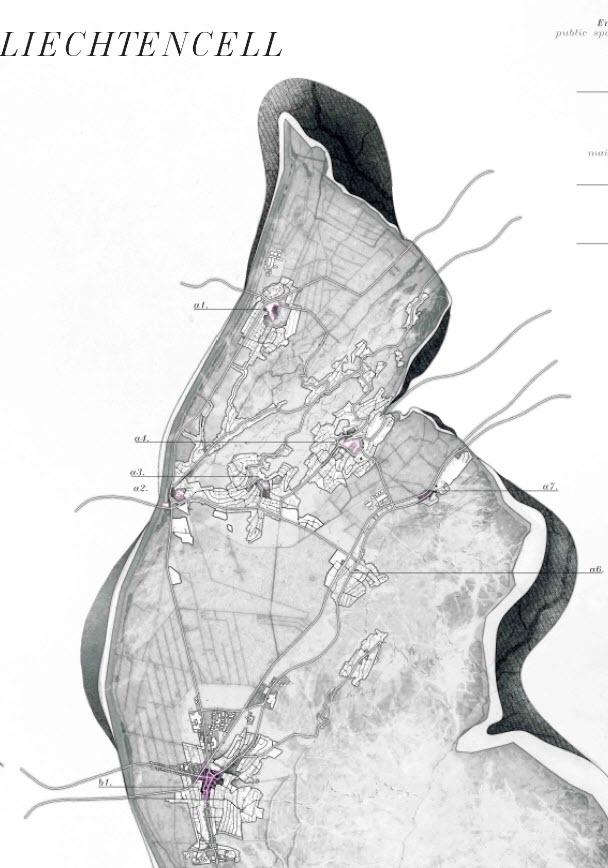The foundation “Zukunft.li”, a think-tank for a sustainable development of Liechtenstein, invited the Institute of Architecture and Planning to think about the future spatial development of the principality.
In close cooperation with other experts of the think-tank we want to discuss the following questions:
- Which existing frameworks (planning regulations, political decisions, population development) influence the spatial development of Liechtenstein currently?
- How will social trends (digitalization, internet of things, new forms of mobility, climate change, ageing population, new leisure needs, etc.) influence the spatial development of Liechtenstein in the next years?
- What does this mean for the settlement development, the landscape, the infrastructure or the population structure of Liechtenstein?
- What kind of new spatial qualities could these trends generate? (E.g. the autonomous cars are coming: what are we doing with the existing parking spaces?)
- Which future scenarios are possible, desirable or have to be avoided?
- How will Liechtenstein look like in the future: a polycentric region, an urban agglomeration, a metropolis?
- How can we illustrate and mediate scenarios as architects for a non-architectural audience?
Content
Anticipatory strategies are needed for adapting the urban structures of Liechtenstein in a way that the impacts of the social trends will not endanger but enrich the urban living environment. Therefore, we will think creatively about different kind of spatial models and scenarios for Liechtenstein in 2050 in a bigger scale. We also intent to zoom in and discuss specific spatial qualities on a smaller scale: where are the outskirts, the city centre(s), the central parks of Liechtenstein?
Methodical approach
We will adopt different methods of analysing the existing spatial qualities of Liechtenstein as urban layer analysis, perceptual walks etc. We will learn how to develop spatial models and scenarios for the future development of a (urban) landscape like Liechtenstein. We will deal with different kind of scenarios (status quo, trend scenario, alternative scenario, contrast scenario) and compare them to each other.
We will experiment with different forms of visualising these spatial qualities – with landscape models, virtual models, movies etc.
Results
In an internal jury process with the think-tank, three works of students will be selected for a further scientific consideration. Besides we will work on an exhibition during the semester.



















